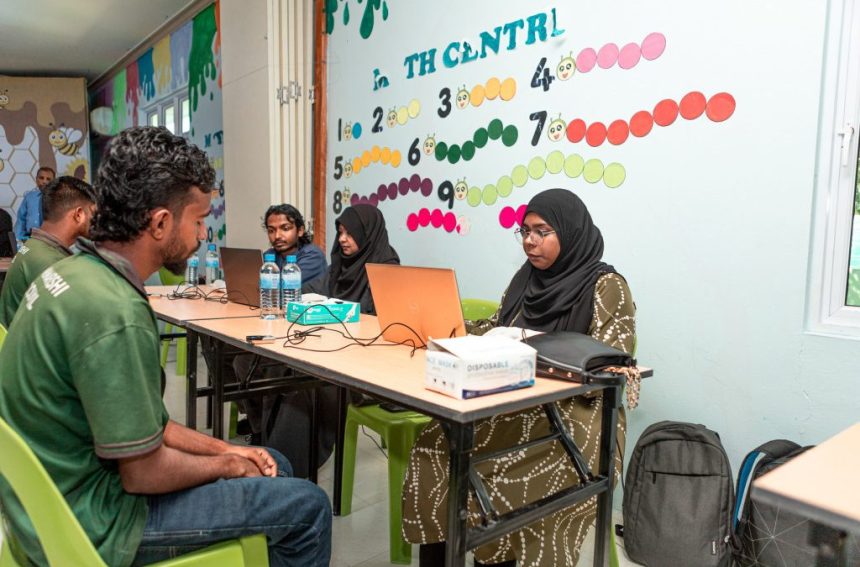The Maldives has successfully collected biometric data from nearly 19,000 expatriates as part of a nationwide effort to address illegal migration. Launched on March 2nd, “Operation Kurangi” is spearheaded by the Ministry of Homeland Security and Technology and represents a key step in the government’s broader initiative to resolve the issue of undocumented expatriates.
State Minister for Homeland Security Abdul Majeedh Ibrahim disclosed that biometric data, including fingerprints, have been collected from 18,919 expatriates to date. The operation has been conducted across 194 islands, with the data collection process completed on 50 of them so far.
Under this initiative, authorities ensure that expatriates are employed in compliance with Maldivian laws and regulations. The biometric data collection is part of phase one of a three-year plan to address illegal migration comprehensively.
Previously, Minister for Homeland Security Ali Ihusan announced that the information gathered under “Operation Kurangi” will be used to compile a national registry of expatriates. Once this phase is complete, the collected data will be entered into a centralized system.
Rather than immediate punitive action, the government plans to offer undocumented migrants an opportunity to regularize their status. However, those who fail to do so will face deportation in collaboration with the respective embassies of their home countries.
The Homeland Ministry, working alongside the Maldives Police Service and Maldives Immigration, has been intensifying efforts to combat illegal migration. These efforts have already resulted in the deportation of over 5,000 expatriates this year.
The biometric data collection is expected to wrap up within a year, marking a crucial milestone in the government’s mission to ensure a more regulated and lawful system of expatriate employment in the Maldives.




